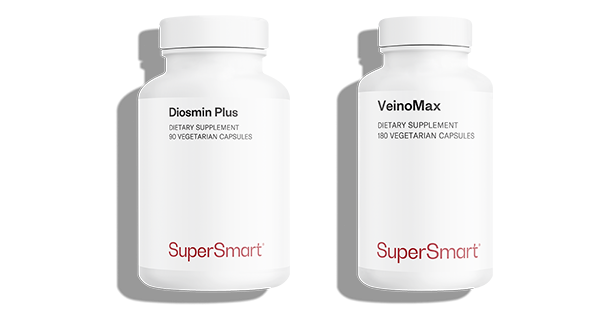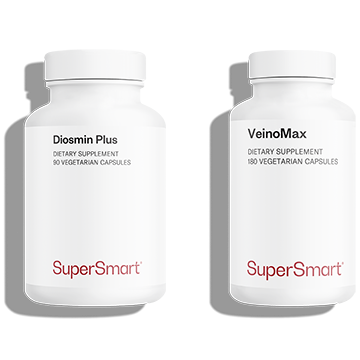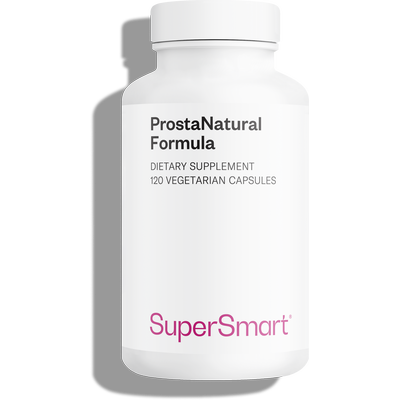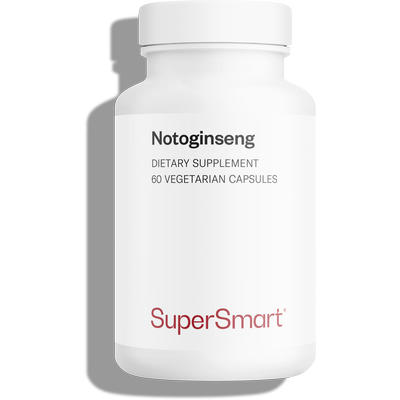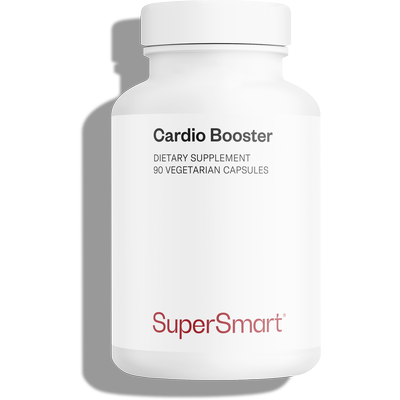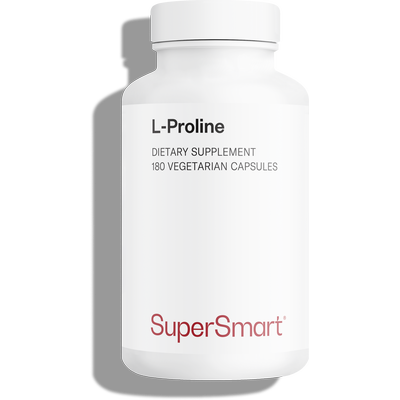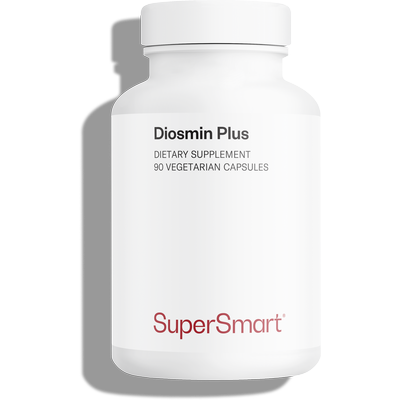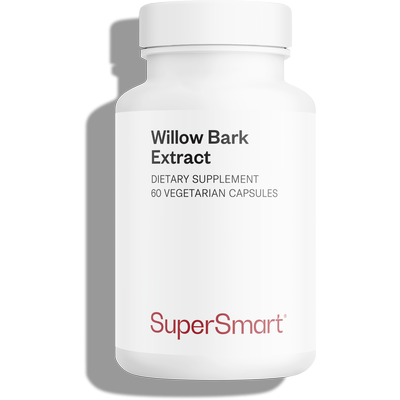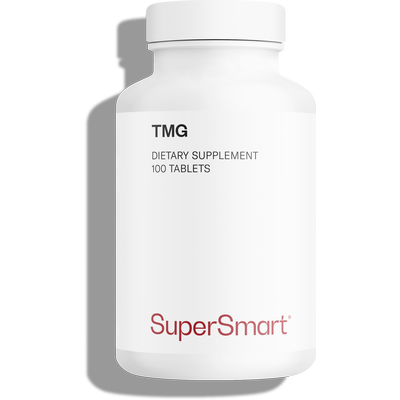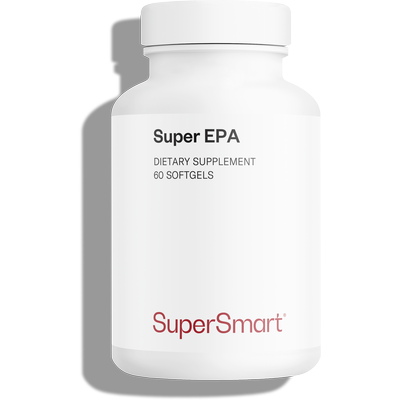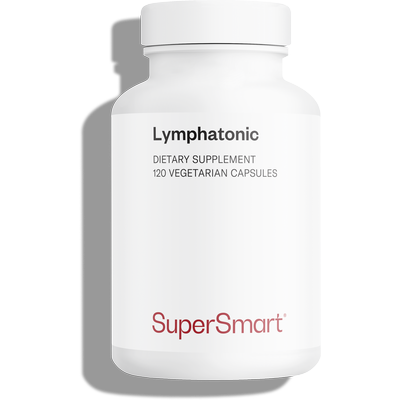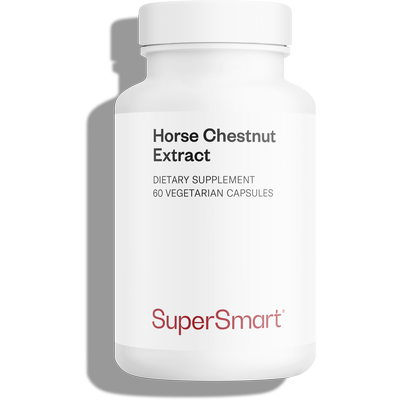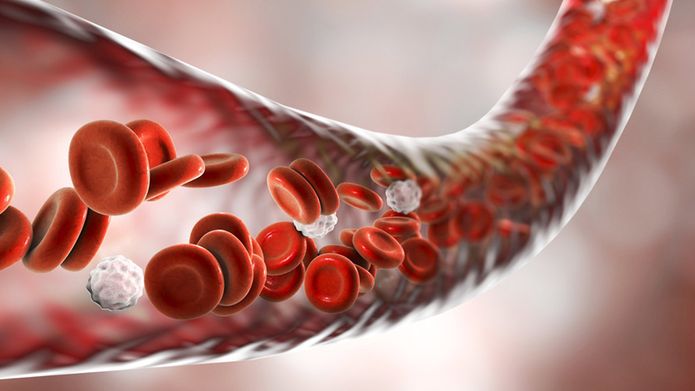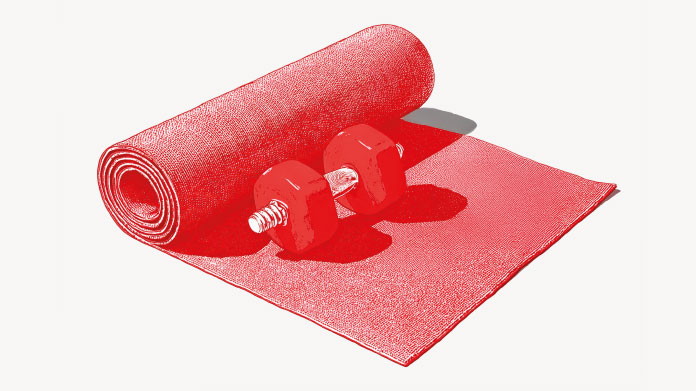In stock
Diosmin Plus + Veinomax
What is in Diosmin Plus + Veinomax
Any questions?
Our team of nutrition experts and scientists has the answers.
Diosmin Plus primarily contains diosmin, a flavonoid pigment found in certain citrus fruits (3-4) and plant species of the rutaceae family.
It’s an active compound that has been used therapeutically for more than 40 years to treat chronic venous insufficiency and is recognised for its venotonic and vasotonic properties. It’s associated with benefits such as strengthening blood vessel walls, increasing venous tone and normalising capillary permeability.
The most common dose for diosmin is 300mg-900mg, ie 1-3 capsules a day.
It is sometimes combined with hesperidin for treating vein problems or relieving heavy leg syndrome during and post-menopause.
Diosmin is extremely well tolerated and safe to use.
In addition to the vascular-protective supplement VeinoMax, you can also try:
- Lymphatonic, a natural formulation based on sweet clover which supports good vein and vascular health;
- Taxifolin, a Scots pine supplement standardised in dihydroquercetin, quercetin’s powerful cousin.
This product’s capsules are composed of HPMC (hydroxypropyl methylcellulose), a plant substance derived from cellulose. HPMC is widely used for medicines and dietary supplements. It contains no animal ingredients, is recognised as safe by health authorities and is considered more sustainable than synthetic alternatives.
Left untreated, venous insufficiency tends to get worse insidiously. Venous stasis has the effect of maintaining dilation of the blood vessels and weakening the valves, further exacerbating venous return.
In the long term, more severe complications can occur, with, in particular, a higher risk of thrombosis (blockage of a vein by a blood clot). In the most serious cases, it can lead to a potentially life-threatening pulmonary embolism (when the clot travels to a pulmonary artery).
Though venous insufficiency can be caused by many factors, there are certain steps you can take to help restore the feeling of light legs and prevent varicose veins :
- practise an endurance sport. As well as strengthening the cardiovascular system, regular exercise improves arterial and venous vasodilation, while boosting blood flow through a muscle pump effect. Speed-walking, swimming and aqua biking are particularly recommended. Impact or resistance sports (such as tennis, rugby and weight-lifting) should be avoided however, as they risk weakening the valves (11) ;
- lose weight if necessary. Obese individuals are more likely to suffer from chronic venous problems as a result of the increased daily pressure on their lower limbs. What’s more, the benefits obtained following a vascular intervention (phlebectomy, sclerotherapy ...) diminish as BMI rises (12) ;
- stop smoking. Smoking precipitates the onset of vascular disease by causing impaired vasomotricity and stiffening of vein and artery walls (13) ;
- don’t remain static for too long. Standing or sitting for long periods promotes pooling of blood in the legs (14). During breaks at work, take a few steps and try not to cross your legs under the desk;
- avoid intense heat. Heat makes blood vessels dilate and aggravates venous stasis. If you suffer from venous insufficiency, avoid the sauna, the hammam and prolonged sun exposure. If you can bear it, end your shower with a trickle of cold water on your legs (14);
- raise your legs. To facilitate venous return and relieve tension in the lower limbs, sleep with your legs slightly elevated (8cm-10cm) ;
This product’s capsules are made of pullulan, a natural polysaccharide obtained by fermenting tapioca or corn. Pullulan contains no animal ingredients and provides an excellent barrier to oxygen, helping to preserve the integrity of the capsule’s ingredients. It is also an eco-friendly alternative to synthetic materials.
Need help?
You may also like

